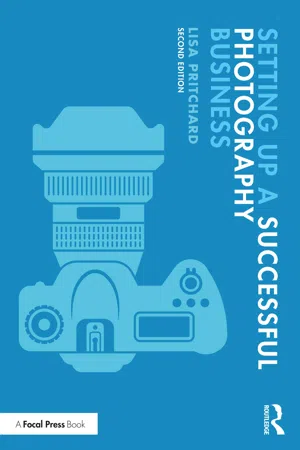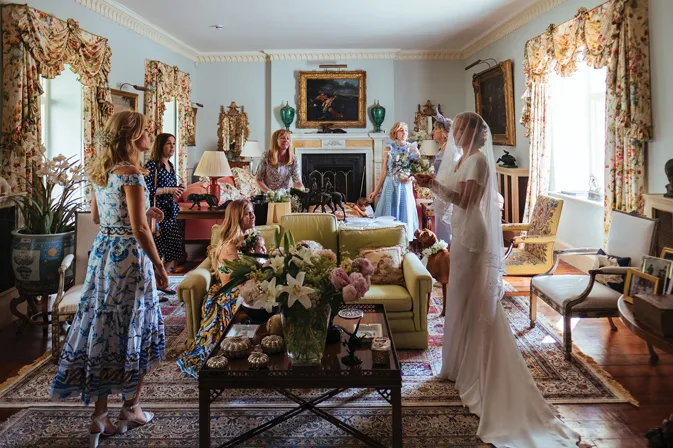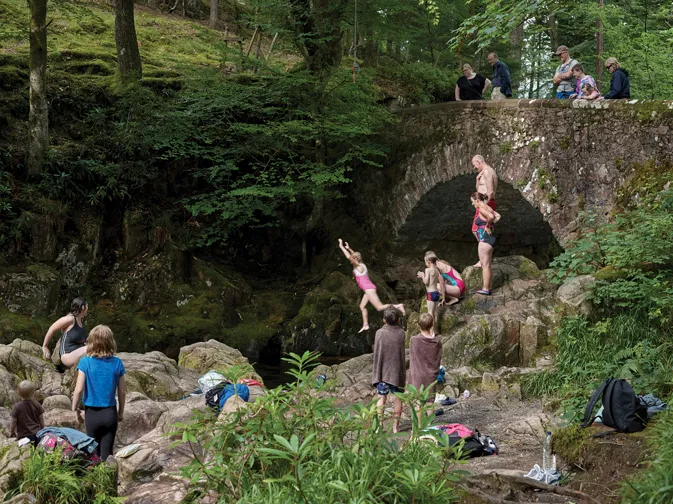
Setting Up a Successful Photography Business
Lisa Pritchard
- 208 pages
- English
- ePUB (mobile friendly)
- Available on iOS & Android
Setting Up a Successful Photography Business
Lisa Pritchard
About This Book
This revised second edition of the best-selling handbook provides practical, actionable insights on how to establish a successful photography business in the current climate.
Written from the perspective of a photographer's agent, this book offers the perfect viewpoint to honestly assess what works, what doesn't, and why some photographers succeed where others fail. Packed with useful templates and advice from leading photographers and commissioners working in all areas of the profession today, industry expert Lisa Pritchard covers all of the essentials: preparing the best portfolio and website; marketing yourself; getting clients; costing and producing shoots; finding representation; financing and running your business; navigating contracts and legal obligations; and more. Updated to take account of shifts in the industry and the increasing importance of digital marketing and social media, this book provides fresh insight and inspiration for the budding and established professional.
This book is essential reading for anyone who wants to be a professional photographer – whether studying to become one, thinking of a change of career, or wanting to know how to improve their existing photography business.
Frequently asked questions
Information
Chapter 1 What’s it like being a professional photographer?

‘The highs are high, the lows are low and there’s rarely any level in between! However, get the balance right and it’s a remarkably privileged and satisfying way to live. I wouldn’t have it any other way.’Peter Dench
‘There are many things I love about being a professional photographer and the things I love far outweigh the things I don't. Firstly, I enjoy the creativity of photography, the fact there's always something to learn and the satisfaction when you achieve something you are proud of. Even better, when a client enthuses about your work and leaves you a wonderful review. I enjoy the flexibility. I work hard but if I want to I can pretty much take time off whenever I would like to. Not that I do though, I definitely work a lot harder as a freelancer than I ever did as a paid employee. As I work with dogs that's naturally a plus because I love spending time with them. I love being outdoors and all the locations I go to. Sunsets will never get boring! I enjoy making my clients happy. A good pay day for doing something you enjoy is also very nice.‘Things I don't like are not particularly related to being a photographer, per se, but more about being self-employed: like irregular income, end of year tax return, running all aspects of the business myself can feel overwhelming at times. Oh, and carrying my very heavy bag around gets a bit tiresome! Oh, poor weather also gets in the way, but I'm so used to this now I don't think about it too much.’Rhian White
‘I firstly love what I do. It’s not a career for me it’s a lifestyle. I am always constantly thinking about the next project, creating the next surface, on the go to find new props or produce and researching on food trends every day. I meet new people every day and it’s exciting to explore their unique talents.‘Personally the negative side is that you have fluctuating income year on year. It’s always the hardest when starting out. I have found as the years go by you adapt and the busier you get, the less this is a factor. You have to have full dedication to being a full time professional photographer.’Tim Atkins
‘Having spent ten years working within a marketing company I am very aware of the freedoms and restrictions that come with working for yourself. I love having control over my own work and direction. I still have to pinch myself that I am able to make a good living from being a photographer — it’s such a privilege to live a creative life and to have access to the places and people that my camera enable. I love that I work with real people and that every day is different — I am present on such a happy occasion and I am creating images that will be treasured for generations. I also enjoy the other side of the work – running an independent business and all the challenges that go with that.‘It’s a wonderful industry to be part of – especially in the last four or five years. There is a strong community and the support network I have with other photographers is unusual within the photography world.‘The main thing I struggle with is the physical stresses of the job – I need frequent massages and have to be careful to take care of my body and stay strong with exercise – holding heavy cameras and being on the go for ten or more hours a day requires good fitness!’Helen Abraham

‘I feel privileged to be able to live off the fruits of my artistic endeavours, however, I also feel that this position comes with a certain responsibility to make work that is politically and socially engaged.’Simon Roberts

‘What I imagined life as a professional photographer to be, compared to the reality seven years into this career is incredibly different!‘My background is a brand and marketing manager so I had some understanding that running the business and administration would be a large part of the job but it is much larger than even I had anticipated. I would say that 80 per cent of my time is spend on running my business with 20 per cent of it shooting.‘The positive aspects of becoming a photographer are that I can manage my own hours and travel time. When working for a company this is dictated whereas I can develop my own working hours. This is very important for me allowing me the freedom to be a parent and fulfil our dreams as a family to travel together.‘The challenges that come with running a business are you lose that guaranteed source of income when working for a corporation. I need to plan further ahead and be less reactive to ensure that I reach my yearly income target.’Nina Mace

A life in the day of…
| Department | Responsibilities |
|---|---|
| Production | Developing and creating the product: building your portfolio of work, planning and preparing for shoots, shooting and editing the images. |
| Sales and Marketing | Marketing and publicity of the product. Developing a target sales database of potential customers. Acting on leads and enquiries. Pricing the work, negotiating with customers and sealing the bids. |
| Financial Management | Taking control of how much it costs to run, build and maintain your business. |
| Customer Services/Reception | Dealing with customer enquiries. |
| Accounts | Invoicing and credit control. |
| Administration | Overseeing office supplies, handling filing, administration and compliance systems. |
| Human Resources | Hiring, training and looking after the welfare and career aspirations of staff. |
| Technical Support and Development | Maintaining and updating all photographic equipment, computer hardware and software. Keeping up to date with changes in technology. |
| Legal | Dealing with client contracts and being aware of other laws that might affect your business (e.g. obligations on photoshoots, employment, tax, insurance, copyright and marketing) |
Have you got what it takes?
Likeability
Good communication skills
The constitution to be self-employed
Drive and passion
Patience and a strong work ethic
Thick skin
Table of contents
- Cover
- Half Title
- Title Page
- Copyright Page
- Table of Contents
- Acknowledgements
- Disclaimer
- Contributing photographers
- Preface
- Introduction
- Chapter 1 What’s it like being a professional photographer?
- Chapter 2 Who buys photography? Where to find your clients
- Chapter 3 What sort of photographer are you? The options
- Chapter 4 The learning curve: Gaining knowledge and experience
- Chapter 5 Making the leap: the transition to becoming a professional photographer
- Chapter 6 Business basics
- Chapter 7 A start up business plan
- Chapter 8 Marketing and promotion. Getting clients
- Chapter 9 Pricing photography
- Chapter 10 The small print
- Chapter 11 Organising a photoshoot
- Chapter 12 Industry codes of practice and legal obligations
- Chapter 13 Agents, agencies, libraries and galleries
- Chapter 14 Building your business
- Chapter 15 Tips from the top: professionals’ advice for success
- Address Book
- Index